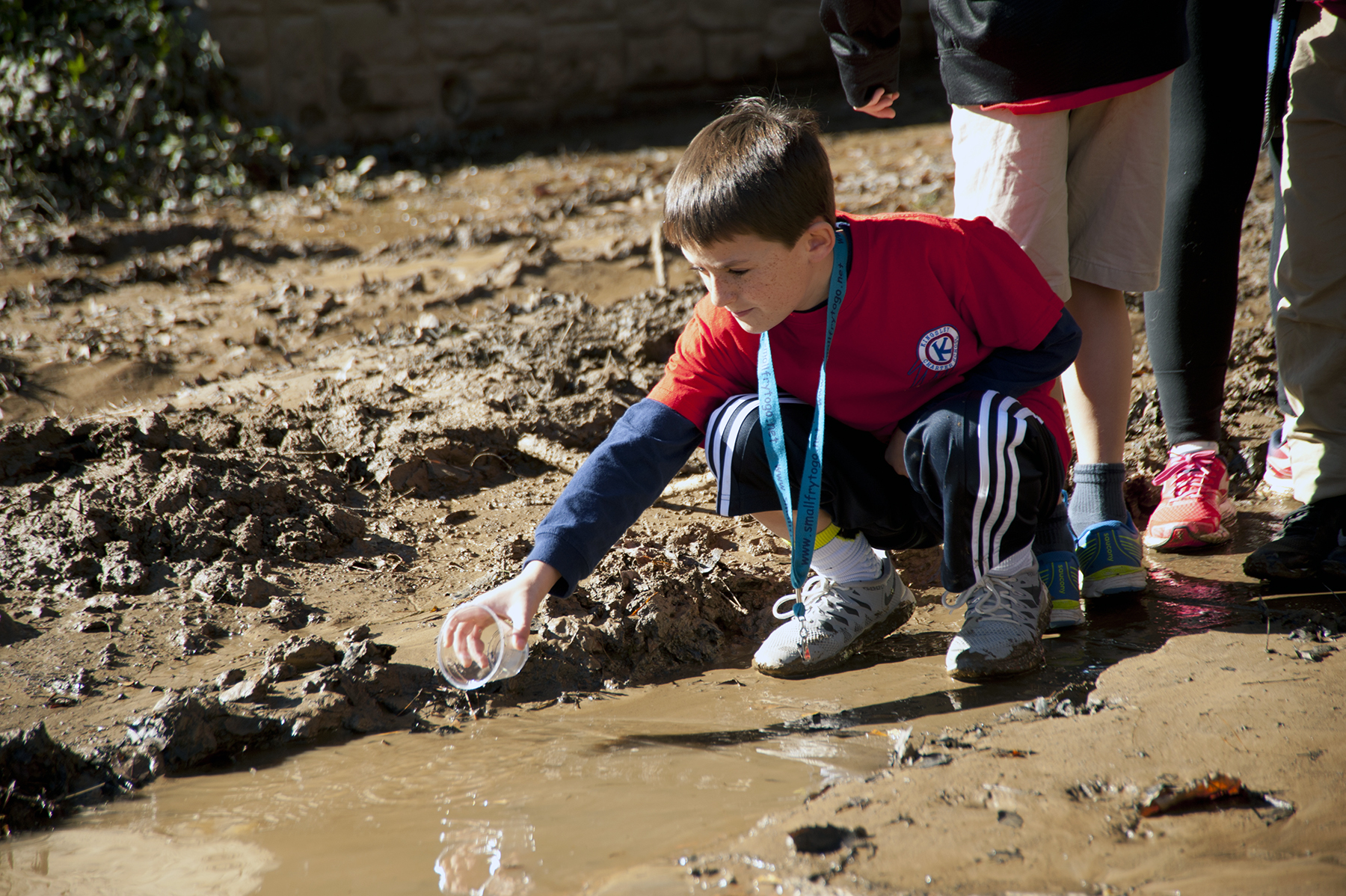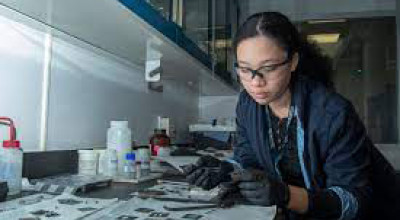
Roughly 300 third-, fourth- and fifth-graders departed the school buses at Paces Mill Park on Highway 41 in Cobb County. While the park provides easy access to the Chattahoochee, the students were not there to fish—in fact, they were there for the opposite of fishing.
Kingsley Elementary School students and teachers gathered at the boat ramp in the park to release nearly 2,000 rainbow trout fry, or small fish, into the Chattahoochee as part of the Small Fry to Go STEM (science, technology, engineering and mathematics) program for pre-kindergarten to eighth-grade students.
Started in 2003, Small Fry to Go is a nationally recognized program that exists as a partnership between pre-K through eighth-grade students from many counties, businesses and state agencies Participating schools receive a specially designed fish hatchery, also called a “labitat,” in addition to fertilized fish eggs from a select hatchery in Washington state. (All fish are genetically modified in the egg stage to be infertile. This keeps the species, which is often introduced in a non-native habitat, from reproducing.)
After the fish reach the fry stage, or roughly 2 inches in length, students carefully put them in aerated buckets and transport them to the Chattahoochee River for the exciting ceremonial release.
Researchers from the Georgia Tech Research Institute (GTRI) serve as advisers for students and teachers during the entire process, which starts at the beginning of the school year for one group of fry and in the spring for a second group. In addition to learning STEM principles, students have an increased appreciation for the environment, seeing how delicate the fish are and how they have to maintain the habitat.
“Students immediately start learning, as they use math in the initial sample counting,” says GTRI Senior Research Associate Mindy DiSalvo. “And during the hatchling phase, students need to take readings to determine water temperature, oxygen and chemical readings. This project really highlights interdisciplinary STEM in the classroom. And, it’s so great watching a third-grade girl from one school say to a third-grade girl from another school ‘What’s your dissolved oxygen level?’”
Small Fry to Go is a true labor of love, and not just for the students. During the weekends and school holidays, for example, school partners, teacher, administrators and students and their parents have to keep feeding and checking the fish and performing water quality and labitat stability. Kingsley students actually gave half of their fish to another school when its fry died. “It’s such a fragile habitat, and it needs constant care,” DiSalvo said.
DiSalvo started the Small Fry to Go program 10 years ago in DeKalb County while she was working as teh Director for Community Projects. Along with Kingsley fourth-grade teacher Karin Markey, her husband Pat Markey, who works for Georgia’s Department of National Resources, and Tom Schmeltzer, CEO of Technology Solutions, the team designed this nationally acclaimed innovative and engaging program. Two schools, Kingsley and Oakcliff Elementary, started the pilot program. DiSalvo now works at GTRI helping with its STEM outreach, STEM@GTRI.
“GTRI researchers provide assistance to schools in a variety of ways,” DiSalvo said. “In addition to providing assistance to students both in person or electronically, our researchers assist teachers with curriculum development and, perhaps most importantly, show the students that there are a variety of careers for those interested in STEM subjects.”
GTRI Senior Research Associate Jim Demmers and Research Associate Jessica Pater have also assisted the Kingsley Elementary students. Kingsley is just one school assisted by GTRI researchers. Researchers, working on their own and also in the capacity of GTRI, have worked with schools to develop curriculum, discuss water quality on a larger scale, explore STEM careers and begin to investigate the development of remote water sensing devices. All of the work and advice is to help the schools lead up to a day like this: Students are able to release the fish into the wild.
After students work with a fisheries biologist and GTRI researchers to equalize the temperature of the river and the buckets, they line up by class to receive a small cup with a few fry inside. They carefully release the fish into the cold, muddy water. Those who have already released some fish watch from a vantage point, and cheer.
“It’s great when students participate in such student-centered exploratory learning where they are mentored by professionals from so many STEM fields," DiSalvo said. "All of a sudden students see the impact of STEM and begin to form a vision of themselves in a career where their office is on the banks of the Chattahoochee River."





